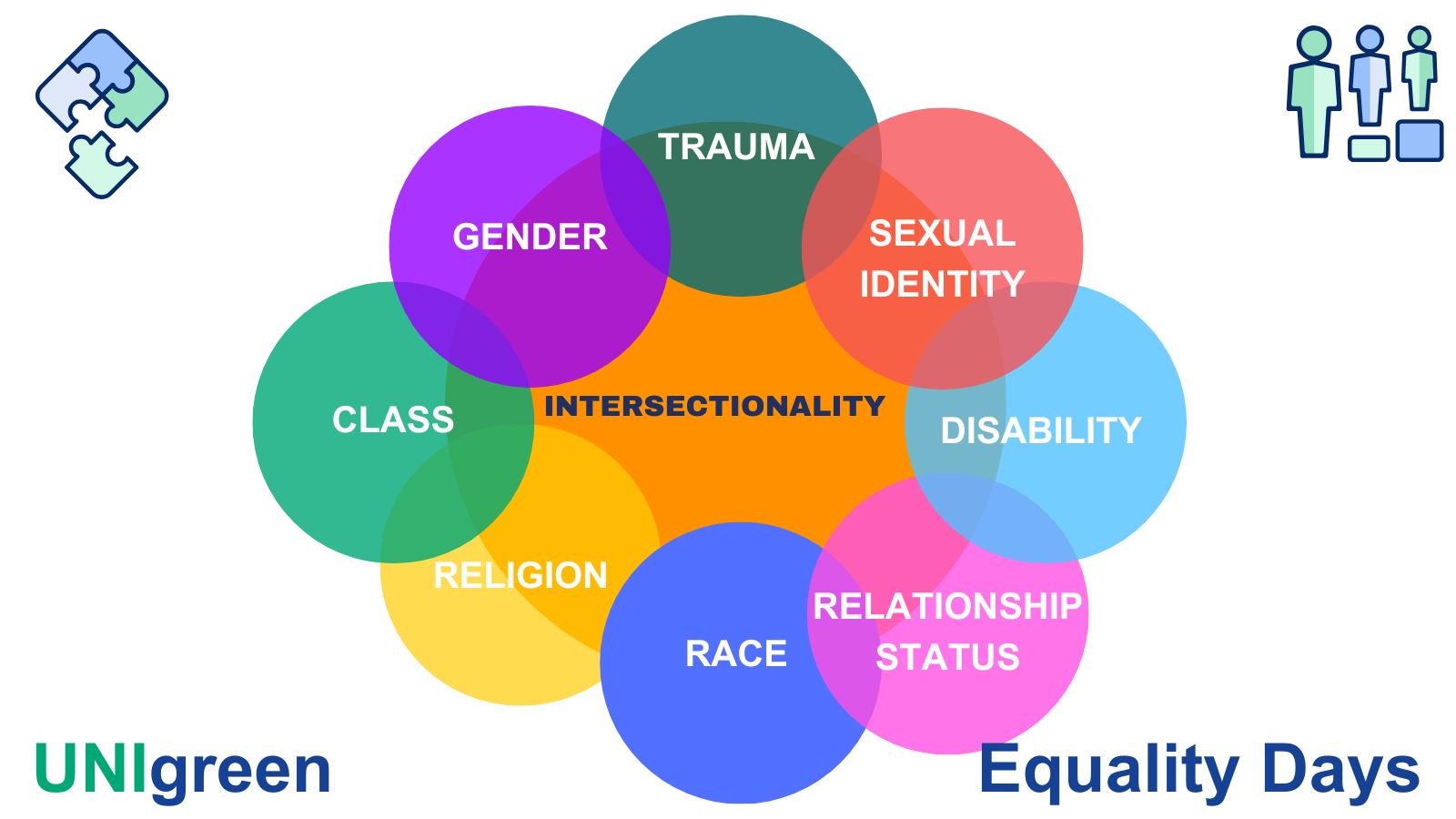December 3, 2025 All day

The purpose of the UNIgren Equality Days is to give visibility to, and raise awareness about, questions related to diversity, inclusiveness and multiculturalism.
This year, the theme is intersectionality.
As part of UNIgreen Equality Day, a special video will be released on 14 November 2025, featuring members of Work Package 5.
UNIMORE release a new Podcast, the 3 December on the International Day of Persons with Disabilities

In this episode, Giacomo shares insights from his work in promoting inclusion in higher education, the challenges still faced by students with disabilities and learning disorders, and the importance of building truly accessible and equitable university environments.
To mark the International Day of Persons with Disabilities, UNIgreen is proud to share a special podcast featuring Giacomo Guaraldi, Rector’s Delegate for Disability and Specific Learning Disorders (DSA) at UNIMORE and member of UNIgreen Work Package 5 (WP5).
Tune in and be inspired by a conversation that brings awareness, action, and hope.

